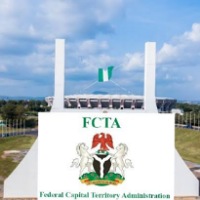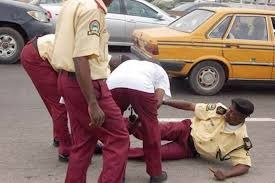Motoring
First Nissan made in Nigeria car out April

GENEVA – Baring any hitches, Nigerians should begin to witness the result of the Federal Government’s automotive policy early this year as Nissan says it’s first made in Nigeria car will be rolled out this April.
Carlos Ghosn, the chief executive officer of Nissan Motors, announced this at an interactive audience granted by President Goodluck Jonathan to him (Ghosn) and representatives of Nissan’s partners in Nigeria on the sidelines of the ongoing World Economic Forum (WEF) in Davos, Switzerland, Thursday.
Nigeria is a major market for most cars manufactured in Asia, Europe and America with statistics from the Nigerian Automotive Manufacturers Association (NAMA), the Nigerian Bureau of Statistics (NBS) and United Nations Conference on Trade and Development indicating that a total of 400,000 vehicles (300,000 used and 100,000 new) valued at N550 billion (US$3.451 billion) were imported in 2012 alone.
 President Jonathan had, while introducing the new Federal Government automotive policy, last year, declared that the automotive industry when fully operational has the potential of creating 70,000 skilled and semi-skilled jobs along with 210,000 indirect jobs in SMEs that will supply the assembly plants.
President Jonathan had, while introducing the new Federal Government automotive policy, last year, declared that the automotive industry when fully operational has the potential of creating 70,000 skilled and semi-skilled jobs along with 210,000 indirect jobs in SMEs that will supply the assembly plants.
The Nissan Motor Company, makers of the Nissan brand of vehicles, quickly keyed into the project and announced that it was willing to set up automobile plant in Nigeria, in an industry that is capable of creating another 490,000 jobs in the raw material supply industry.
Ghosn informed President Jonathan that Nissan Motors is now ready to “roll-out the first made in Nigeria 4 X 4 Utility SUV in April this year using the old Volkswagen assembly plant owned by its partners”.
Ghosn, who said that it was possible to produce two to three million cars in Nigeria annually with the consequent creation of thousands of direct and indirect jobs, told the president that Nissan intends to increase its investment in Nigeria and establish its own vehicle production plant in the country.
He also applauded the Federal Government’s new automotive policy, saying that it would encourage the inflow of investments and technical expertise to boostdomestic vehicle production.
“We are interested in producing popular cars, totally adapted to the needs of Nigerians”, he said, adding that the company also plans to bring its global suppliers to make vehicle components in the country.
President Jonathan told his guests that a key objective of the new policy was to make new cars affordable to more Nigerians.
The president, in his response, noted that his administration is fully committed to rapidly developing Nigeria’s automobile industry through the diligent implementation of the country’s new national automotive policy.
“The only way to reduce the preponderance of second hand cars on our roads is to produce good quality cars with affordable pricing locally”, the president said.
– BUSINESS DAY
Motoring
FCTA Pulls Plugs On Taxi Rank, Terminal Services Contracts

The Federal Capital Territory Administration (FCTA) has ended contracts with taxi rank and terminal operators due to their failure to meet engagement terms and conditions.
Mr. Ubokutom Nyah, the Mandate Secretary of the Transportation Secretariat, FCTA, made this announcement during a meeting with managers of these terminals and taxi ranks in Abuja.
Nyah clarified that due to the operators’ failure to fulfill their engagement terms, the FCTA had to terminate their contracts.
He instructed them to transfer control of the ranks to the Administration within three months, starting from Nov. 21.
He lamented the presence of unauthorized motor parks in the city and assured the readiness of the Administration to establish proper taxi ranks and terminals in the capital.
He revealed that personally visiting the city’s taxi ranks, terminals, and unauthorized motor parks gave him direct insight into the poor condition of these facilities.
He emphasized that as the federal capital city, Abuja deserves better, highlighting that the poor condition of these facilities attracts various criminal elements.
He said “We must rid Abuja of all these. I have gone round the taxi ranks, and of all the places I visited, not one is worthy to be called even a village motor park.”
The Mandate Secretary stressed that the intention wasn’t punitive; rather, it aimed to revamp the sector, introduce new engagement terms, and modernize taxi ranks and terminals in the federal capital.
He also highlighted the plan to increase the number of terminals and ranks where necessary, which would positively impact the administration’s revenue.
He emphasized that this measure was part of a broader effort to eliminate illegal motor parks in Abuja and curb the associated criminal activities.
In response, Mr. Adebisi Lawal, the Operator of Jahi Taxi Rank, praised the administration’s initiative to modernize the taxi ranks and terminals.
Lawal urged the administration to prioritize current operators’ involvement in the selection of new developers for the modernization of the taxi ranks and terminals.
Motoring
Power Show Sees Soldiers Batter LASTMA Officer

It was a show of power at the Ojota area of Lagos on Monday as soldiers pummeled an officer of the Lagos State Traffic Management Authority, (LASTMA).
Eyewitness accounts claim that the ugly scene played out around 8am, and saw about eight soldiers pounce on the yet to identified LASTMA official, while his colleagues took to their heels.
The video of the melodrama has gone viral, where the LASTMA official was appealing to the soldiers, who appeared bent on ‘teaching him a lesson’.
This onslaught comes on the back of a reported assault of a soldier at the same location by LASTMA officials last week.
It would appear that what played out today was the army asserting its authority and defending their khaki as the armed soldiers carried out what looked like a revenge mission.
Eyewitnesses further averred that the victim was rushed to a nearby hospital, after the soldiers left the scene.
It was gathered that the authorities at LASTMA has reported the incident to the military authorities who are said to be looking into the matter.
Meanwhile many members of the public are rejoicing that the soldiers have taught the crude LASTMA official that power is stronger than power, for all their atrocities against motorists on Lagos roads.
Motoring
Intra-City Fares Skyrocket By 98% Month-On-Month – NBS
The impact of the removal of subsidy on Premium Motor Spirit (PMS), otherwise known as petrol, has seen the pump prices of the product skyrocket with a corresponding increase in the cost commercial transportation in Nigeria.
According to the National Bureau of Statistics (NBS), intra-city bus transportation fares across Nigerian cities, measured between May and June 2023, increased from N649.59 to N1,285.41 in June 2023.
This translates to 98 percent growth or N635.82 within the month in view.
The NBS made the data available in its Transport Fare Watch report for June 2023.
In the report, the NBS also shared the breakdown of bus journeys within the cities per drop for constant routes; bus journey intercity (state route); charges per person, amongst others.
On a year-on-year basis, the report has it that bus fares rose by 120.63 percent from N582.61 paid by commuters in June 2022.
The average fare paid by commuters for bus journey intercity per drop rose to N5,686.49 in June 2023 compared to N4,002.16 in May 2023 indicating an increase of 42.09 percent, month-on-month.
The report read, “The average fare paid by commuters for bus journeys within the city per drop increased by 97.88 per cent from N649.59 in May 2023 to N1,285.41 in June 2023.
On a year-on-year basis, it rose by 120.63 per cent from N582.61 in June 2022.
“In another category, the average fare paid by commuters for bus journey intercity per drop rose to N5,686.49 in June 2023, indicating an increase of 42.09 on a month-on-month basis compared to N4,002.16 in May 2023.
“On a year-on-year basis, the fare rose by 55.25 per cent from N3,662.87 in June 2022.”
Biztellers reported that the twin forces of forex pressure and increasing price of Brent in the global market would likely see the pump prices of petrol, increased again in no distant time in Nigeria.













